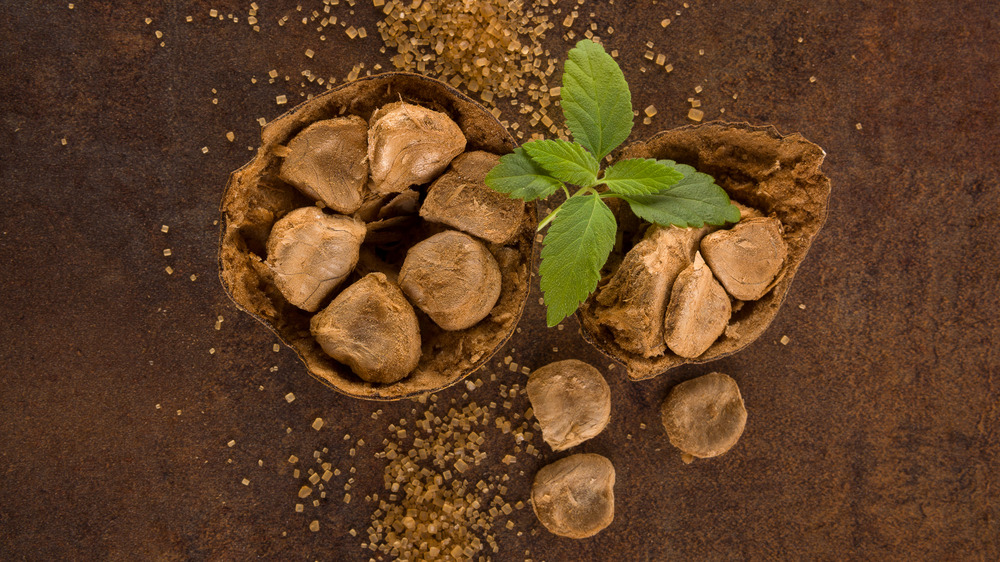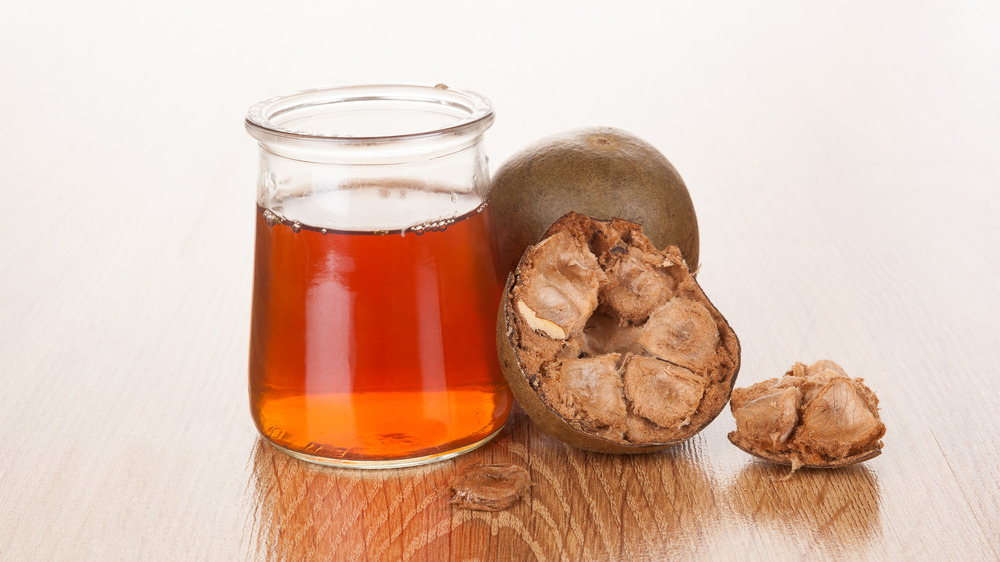When You Eat Monk Fruit Every Day, This Is What Happens To Your Body
When you eat monk fruit every day, what happens to your body? If you haven't heard of monk fruit, or lo han guo, please allow us to introduce you to the small but mighty gourd (yes, gourds are considered fruits) that's been recently turning heads in the mainstream wellness industry. Native to southern China, monk fruit has been used in Traditional Chinese Medicine for centuries, according to Lakanto. Although it might not stand out among the other colorful produce at the grocery store, it still packs a pretty sweet punch that shouldn't be overlooked.
When the monk fruit is dried and extracted, you're left with a natural sweetener that's "150 to 200 times sweeter than table sugar, has zero calories and carbs, and does not raise blood glucose levels," according to Healthline. We know, pretty wild, right? Bonus points for there being zero known side effects of consuming monk fruit sweetener. Some companies have started adding monk fruit extract to their wellness products in lieu of traditional sweeteners (hello, ReNude!), which has led to tons of people adding the extract to their morning cup of coffee, smoothies, and other foods. But what does eating monk fruit every day do to your body?
There are pros and cons
Contrary to what happens to your body when you eat sugar every day, monk fruit is sweet thanks to naturally-occurring compounds called mogrosides. That means the fruit generally safe for diabetics as long as there aren't any added sugars, according to Healthline. But the benefits of eating this tasty gourd don't end there. Since it touts zero calories, carbs, and fat, monk fruit could even promote weight loss (again, as long as you steer clear of added sugars). Plus, its mogrosides even have anti-inflammatory properties that are believed to aid in relieving sore throats, reducing phlegm, keeping blood sugar levels stable, and potentially preventing cancer.
Alas, there are some downsides to eating monk fruit every day. Perhaps the most obvious downside is that monk fruit isn't typically easy to find unless you live in a region where it's grown. Your best bet is to check Asian markets to see if they carry any imported dried monk fruit, suggests Healthline. Also, if you're allergic to pumpkins or other types of gourds, tread carefully when trying out monk fruit for the first time since it's in the same family. If you're unsure if you can have monk fruit, consult with your healthcare provider.

